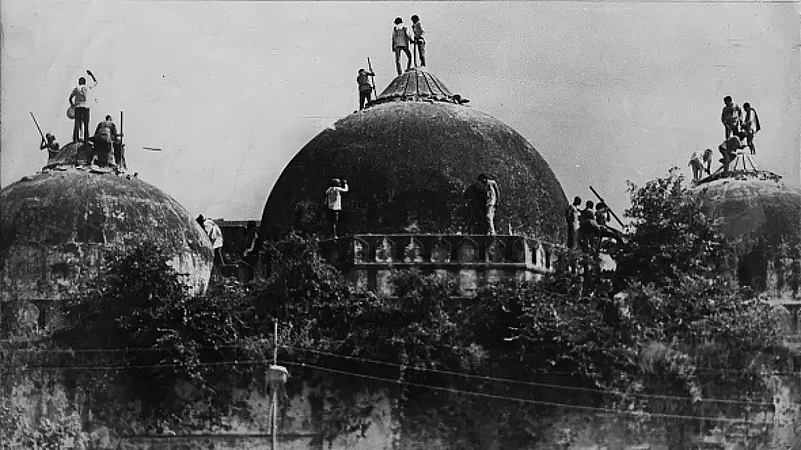The All India Muslim Personal Law Board (AIMPLB) on Wednesday said it will move to the Supreme Court to challenge the acquittal of accused in Babri Masjid demolition case.
A Special CBI Court in 2020 acquitted the 32 accused in the Babri Masjid demolition case. The accused included top Bharatiya Janata Party (BJP) leaders of the time, such as former Deputy Prime Minister Lal Krishna Advani, Murli Manohar Joshi, Uma Bharti, and Kalyan Singh.
On December 6, 1992, thousands of Hindu kar sevaks demolished Babri Masjid in Uttar Pradesh's Ayodhya. They believed that it was built stop the ruins of a demolished Hindu temple marking the birthplace of Lord Rama, an inarnation of Hindu God Vishnu. When the mosque was demolished, a case was already going on for the ownership of that plot of land. In that case, the Supreme Court in 2019 awarded the plot of land to the Hindus. A Ram Mandir is now being constructed on that land.
Advertisement
Earlier this year, two Ayodhya residents Haji Mahboob and Syed Akhlaq moved a revision petition before the Allahabad High Court. A two-judge bench of High Court rejected the revision petition on November 9, saying the appellants had no locus to challenge the judgment as they were not victims of the case.
AIMPLB executive member and spokesperson Syed Qasil Rasool Ilyas said the board has now decided to move the Supreme Court against the acquittal.
"We are certainly going to approach the Supreme Court as the apex court in the Ayodhya Verdict itself has accepted that the demolition of Babri Masjid was a criminal act. The five-judge Supreme Court bench that delivered the historic Ayodhya verdict had termed the Babri Masjid destruction a serious violation of the rule of law and the accused are still out of the reach of Law," said Rasool to PTI.
Advertisement
Rasool said appellants Haji Mahboob and Syed Akhlaq were CBI witnesses and their houses were attacked and burnt on December 6, 1992 by a mob that was gathered by the accused. He said Mahboob and Akhlaq lived in the close vicinity of Babri Masjid.
Mahboob and Akhlaq had moved the High Court on January 8, 2021 against the CBI Court judgement.
While rejecting the petition, the High Court said in its order, "In view of the foregoing discussion, this Court is of the opinion that the instant criminal appeal filed on behalf of the appellants under Section 372 Cr.P.C., under the facts and circumstances of the case, is liable to be dismissed on the ground of non-availability of the locus of the appellants to challenge the impugned judgment and order dated Sep, 30, 2020 passed by the trial Court, hence the same is, accordingly, dismissed."
The petition of Mahboob and Akhlaq argued that the trial court had made an error in its verdict as ample evidence was on record.
Notably, the trial judge had refused to believe newspaper cuttings and video clips as evidence as the originals of the same were not produced, while the entire edifice of the case rested on these pieces of documentary evidence, reported PTI. The trial judge also had held that the CBI could not produce any evidence that the accused had a meeting of mind with karsevaks who demolished the structure.
The petitioners have said, "The trial judge did not appreciate the evidence of conspiracy in the right perspective."
Advertisement
(With PTI inputs)




















